- Home
- George R. R. Martin
Old Mars Page 31
Old Mars Read online
Page 31
Kane stiffened. “I graduated from Lowell.”
“I didn’t mean—”
“Yeah, you did. You think this is Hicksville.”
“Don’t change the subject. That’s a distraction. You need to face up to what you’re really doing. You’re taking the coward’s way out. Not defying your father, and letting Tilda and me suffer because of your lack of spine!” The moment the words were out, Noel wished he could recall them. Even with Kane’s dark skin, Noel could see the blood rushing into Kane’s face.
“And now I see what the famous SpaceCom officer thinks of me!” He whirled and stormed to the door.
“Kane, wait! I’m sorry, I—”
The heavy metal door whispered shut, but it felt like a slam.
Tilda pushed back the canopy and climbed into her garishly painted ultralight plane. Was it the unremitting red of Mars that made settlers so crazy for color? she wondered. Hers was painted silver, with blue stars and moons and streaks and swirls across the overly long wings and fuselage. She taxied down the runway, past the big crawlers that carried their goods to the spaceport in Lowell City. The long acceleration down the runway, and the extralong wings, caught enough of the thin Martian atmosphere, and she was in the air. In the distance, she saw Ali’s black plane with silver lightning bolts also climbing into the ruddy sky.
She banked to come in next to him, and they flew wingtip to wingtip as they passed over the Martian city. She wondered what her dream Martians would make of it now. The jewel-tone towers were still the same, but now the avenues were washed with red dust and filled with the whine and moan of the incessant Martian wind instead of with songs.
The shadow of the ultralights’ wings swept across the red sand and rock of the planet, and played tag with the swirling whirlwinds dancing across the craters and plateaus. The fragile light of the distant sun sparkled on the domes covering the farm fields of the settlers.
Through the front windshield, she watched the looming mass of Mons Olympus, the solar system’s largest volcano, draw closer. The peak scraped at the red sky of Mars, and a few tattered clouds coiled about the shoulders of the mountain as if the massif were trying to wrap itself in a thin shawl.
Ali broke the silence. “I’m going to miss this.”
“Have you been to Earth?” Tilda asked.
“No.”
“You’ll like it.”
“My mom’s afraid that I won’t want to come back.”
“What did you say to her?”
“I promised her I would.” There was a hesitation. “But I lied. I don’t know how I’m going to feel after college and med school, maybe a residency spent down the gravity well.”
“Maybe it would have been better to be honest?” Tilda suggested.
“She cries all the time. Just think what she’d do if I’d said that.”
They crossed over a canal, and on sudden impulse, Tilda said, “Let’s land.”
“Why?”
“I want to drop a rock into a canal. I haven’t done that.”
“You hoping something will crawl out?” Ali teased.
“No, of course not. I just … look, just go with it, okay?”
“Okay.”
They found a level area not far from the sharp cut of the canal and landed. In Mars’s low gravity they were able to take long, floating strides that quickly carried them to the edge of the canal. It was obvious that it wasn’t natural. The edges were clean, as if cut by a laser, and the walls were impossibly straight. Tilda knew that early explorers had lowered probes into the canals but nothing had been found. Just sheer walls of fused glass. Why had the Martians made them? What purpose had they served?
Initially, the fear that something lived in those deep cuts had discouraged colonization, but years passed and nothing ever emerged from the canals, and necessity replaced fear. The home world, gripped in climate change and lacking enough cropland for her teeming billions, needed a new breadbasket. So the doomsayers had been overridden, and the settlers had arrived.
Tilda knelt on the edge of the canal and picked up a rock. Dropped it over the edge. Waited for what seemed like endless heartbeats. Predictably, nothing happened.
“It’s so strange they left no written records,” Ali said.
“I think O’Neill is right, and music is how they passed information,” Tilda answered, referring to a theory formulated by Mars’s most famous xenoarchaeologist.
“Seems supercumbersome. What if you were a Martian that couldn’t sing? Would you be like a mute?”
Tilda laughed, happy to find herself able to laugh after so many weeks of tension. “That’s a really interesting question.”
“That’s me, all interesting questions, and no answers,” Ali said. He had a nice smile. “What do you want to do now?”
“I should probably get back,” Tilda said halfheartedly.
“And I’ve got a pressure tent, and Mom put up a lunch for us. How about the Face? We can quote ‘Ozymandias’ to each other.”
The flight took another hour. From the air, the Face was massive and easily discerned, the blank eyes frowning up at the red sky, mouth set in an uncompromising line. Once they landed, it appeared as just sheer red cliffs. Something that could be seen from space had to be too large to grasp from ground level.
“Wonder how they carved it?” Ali asked, as they set up the tent.
“Must have been aerial,” Tilda said. “Lasers from above to cut away the rock.”
“I’d hate to be the guy who missed the dotted line,” Ali said as he hit the oxygen canister. Tilda set up a small heater, and, with a sigh of relief, removed her helmet.
Mrs. Al-Jahani was a wonderful cook, and she had packed baba ghanoush and curried chicken, both choices wrapped in tender pita bread. There was baklava dripping with honey for dessert. Fortunately, bees had taken well to the life in the Martian domes. Which was good, they had pretty much vanished on Earth.
Ali seemed nervous as he packed up the picnic basket. “I was thinking, I’m going to be in Paris. You’ll be at Cambridge. Not that far apart. Maybe we can … get together.”
“I’d like that,” Tilda said, and suddenly the handsome, dark-haired Ali presented himself as potential boyfriend material. She’d have to think about that, but right now it gave her a warm, tingly glow.
They replaced their helmets, and broke down the tent, and stowed it back in Ali’s ultralight. They then went to the side of the Face. Somewhere in the recent past, some human had carved steps into the side of the mammoth statue. Tilda felt guilty as she clambered up but ultimately shrugged and accepted it. She hadn’t done it, and it was too late to undo it.
On top, they walked across the massive chin, across the cheek, and stood looking down into the notch of the left eye.
“I wonder who he was,” Tilda said softly.
“And that’s why they should have left written records,” Ali said. He paused, then added, “Hey, you want to come back to our place for supper?”
Tilda thought about the morose silence that held court at the McKenzie table and nodded happily. “I’d like that, thanks. I’ll radio home and let them know once we get in the air.”
“Which we’d better do,” Ali said, squinting at the distant, setting sun.
Noel-Pa gave her permission, but his voice sounded stretched and thin. She hoped that he and Daddy-Kane hadn’t had another argument.
The sun, small and distant, sank below the horizon. The moons of Mars rose and passed each other as they raced in opposite directions across the sky. Without the cushion of deep atmosphere, the stars seemed fingertip close. As if by agreement, they flew in silence, soaking in the moment. Eventually, the farm domes came into view, glittering like captured stars on the horizon. The towers of the Martian city formed shadow fingers, stretching as if to capture the stars and moons.
Dinner at the Al-Jahani house was loud, delicious, slightly disorganized, and very fun. Mrs. Al-Jahani’s face was like an exquisite cameo set in the frame of her
headscarf. Mr. Al-Jahani held their youngest child, little Jasmine, on his knee. Ali’s two younger brothers surreptitiously punched and pinched each other, and Siraj, his merry black eyes alight with mischief, kept up a singsong of “Ali’s got a girlfriend.” Which eventually earned him a punch from his elder brother.
It all reminded Tilda of the cheerful, cozy family dinners she’d enjoyed with her fathers before they had moved to Mars. Wistfully, she wondered what it would have been like if the men had crèched a little brother or sister for her, but she knew that such technology was expensive on a military officer’s salary. Still, it might have made a difference now. Maybe one of these imaginary siblings would have wanted to be a farmer and mollified Grandpa Stephen.
After dinner, they played mahjong and Scrabble, much to the disgust of the younger boys, who had wanted to load up a SimGame and shoot aliens. When Jasmine fell asleep in her mother’s arms, Tilda knew it was time to go. Ali walked her back out to her ultralight and briefly clasped her hand.
“This was fun. Thanks for spending the day with me,” he said softly.
Tilda, studying the line of his cheek, and his mouth with its rather lush lower lip, thought how, on Earth, he would have leaned forward and kissed her now, but here they were separated by their helmets. She settled for giving his hand a tight squeeze.
“Thanks for inviting me. I had a wonderful time.”
“We’ll do it again before we leave.” He got an arm around her and gave her a hug, which Tilda enthusiastically returned. She then climbed into the ultralight and made the short hop over the canal that separated the two farmsteads.
She was surprised to find both her fathers waiting for her in the cavernous living room. She noticed that Noel-Pa was paler than usual, holding his face so still that he seemed more like a marble statue than a living man. Daddy-Kane put an arm around her shoulders and guided her to the sofa, but she noticed that he never looked directly at her.
Then he began to talk, and with each word that Daddy-Kane spoke, Tilda felt herself dying. She wanted to scream, run, cry, batter at the stone walls that seemed to be drawing closer and closer. She hunched over, folding around the agony in her heart.
“But … but I don’t want to study agronomy,” she finally said. It was an effort to force out the words through a throat that ached with unshed tears. She mustered a smile. “I’m terrible with plants, Daddy, you know that. I killed a ficus, for heaven’s sake!”
Always before, Daddy-Kane had responded to her teasing. This time, he remained stone-faced.
“You’re a McKenzie. We grow things.”
“And some of us kill things.”
Tilda’s eyes darted to her other father, and she was terrified by what she saw in Noel’s face as he looked at his husband.
Kane’s head jerked up and his eyes narrowed as he looked at Noel. “Well, that was certainly threatening.”
“All I meant was that I was a soldier. Why aren’t you pushing her to enlist? Why does it have to be your family tradition that she follows?”
“You said it yourself—you kill things.” Kane’s tone was nasty. “I want something different for her.”
Tilda stood and laid a shaking hand on Kane’s arm. “And I want something different for me too, but it should be what I want. I want to study philosophy and comparative religion. I want to understand the Martians, and the ice creatures on Europa. Please, Daddy.” Her voice caught on the final words, and she feared she sounded like a five-year-old.
“The Martians are dead. The creatures on Europa may not even be intelligent, and all you’ll be able to do with that degree is teach,” Kane said.
“And what’s so wrong with that?” Noel snapped.
“It’s useless and pointless.” Kane’s breaths were ragged and harsh. Kane looked down at Tilda. “Until your majority, your grandfather and I pay the bills and set the rules. You’re going to Lowell College. Classes start in five weeks.”
It was the harsh tone more than the words that finally broke her control. Tilda gasped out a single sob and bolted from the room.
Blinded by tears, she ran for her bedroom; she heard Daddy-Kane say defensively, “She’ll have a cry and be over it by tomorrow. Kids are resilient.”
Noel answered harshly, “You’ve broken our daughter’s heart! I don’t think I can ever forgive you.”
When Noel slipped into her bedroom, he discovered that she had fallen into an exhausted sleep. The soft shush of the door sliding didn’t wake her, and he had to give her shoulder a gentle shake. She sat up, clawing the hair off her face. The skin around her eyes was swollen and red, and she winced as light hit her tear-burned eyes when Noel switched on her bedside lamp.
He sat on the edge of the bed, and she flung her arms around him. “Can they really keep me here until I’m twenty-one?”
“Yes. Martian law controls in this situation, and they’ve always been pretty old-fashioned.”
“And you’re going to tell me to be patient.” The joy and youth had gone out of her voice. She sounded like an old woman.
“No. I’m not.” He nervously pleated the edge of the sheet between his fingers. “There is a way around the age of majority. It’s a case where Martian conservatism actually works for us.”
She bounced up until she was kneeling on the bed, hope kindling in her eyes. “Okay. I’ll do it. What is it?”
“Whoa. Wait. Hold on until I tell you. You might decide that Lowell College’s school of agronomy is preferable.” He paused, gathered a breath. “You enlist. You can enlist at seventeen with just the consent of one parent. Then you apply for the College Commissioning Program—Green to Gold. You’ll serve a year enlisted, but with your test scores, discipline, and with the recommendations from flag officers who owe me favors, you’ll get in. Cambridge is holding a slot for you already. You’ll be attending university, and just have to meet the year-for-year commitment. And you’ll be an officer.”
She frowned, chewed at her lower lip. “Will I have to study what SpaceCom tells me to?”
“They don’t care about the degree. Just about the process and achievement.”
She sat with the idea for a few minutes. Noel wondered if she was picturing herself in one of the blue-and-gold uniforms. “You taught me to shoot.”
“I did indeed.”
“Is another war likely?” she asked.
“It’s hard for me to answer that. I don’t think so. Since the Belt Rebellion, the politicians on Earth seemed to realize that they need to talk to the settlers rather than bullying them. Hopefully, that will continue.”
“And that’s what you hate about this,” Tilda said, gazing up at him. “You think we’re being bullied?”
He hugged her tight. “Yes, I suppose I do.”
“Okay, I’ll—”
He placed a finger against her lips. “No, I want you to think about this carefully. Remember, there’s no guarantee this will work. Plans can fall apart. Let me know in a few days. But whatever you do, don’t let Stephen get a rise out of you. If he thinks you’re rebellious or going to be mulish, it will make it harder for us to get away. If you should decide to enlist.”
She took three days to consider. She watched war movies and documentaries about the Belter Rebellion on her ShowSim. Could she stand basic training? Probably. She was in good shape and liked to be active. Guns didn’t scare her. Dying did. But how was that different from any other person currently living?
Tilda had followed her father’s advice and not pitched a fit. Stephen read her silence for acquiescence and absolutely fawned over Tilda. Each time he hugged her, he threw a triumphant glance at Noel-Pa as if saying, see, she’s mine now. Toward his son-in-law, Stephen became even more horrid.
On the third night, the three of them sat in the living room. Noel-Pa, seated on the sofa, mended one of Kane’s shirts while Kane flipped through a seed catalogue that he’d brought up on his ScoopRing.
“With Tilda going off to school, I think I’d like to get out of the hous
ework and join you in the fields,” Noel-Pa said.
“I’d like that too, but maybe not right now. Dad likes working with me.”
“Why can’t he work with both of you?” Tilda asked, but it was more a challenge than a question.
Noel-Pa shot her a warning glance, and Kane looked bedeviled and irritated. “Look, this might not be the best moment. Let’s all just stay …” His voice trailed away.
“What? Stay what?” Tilda demanded.
“I’m going to bed,” Kane growled, and stomped off toward the bedrooms. Tilda noted how Noel’s eyes followed him and how sorrow had etched lines into his face.
“Take a turn and look at the stars before bed?” she suggested.
Noel nodded and followed her out of the house. The dome softened the brilliance of the stars and gave an almost rainbow hue to Phoebus rushing overhead.
“I’ve decided. I want to enlist. And maybe once I’ve gone, Grandpa will have to accept you and stop looking to me.”
He brushed her hand back with a gentle hand. “Don’t worry about me. Let’s get you onto a SpaceCom ship.” He threaded her arm through his, and they walked out into a field, where they could see anyone coming and wouldn’t be overheard. “Long-range forecasts show a hell of a dust storm coming day after tomorrow. It’s heading toward Lowell City, and we can run before it.”
“And Daddy and Stephen won’t be able to follow, because by the time they’ve discovered we’re gone, the storm will have grounded them, and the crawlers are too slow to catch us.” The sense of secrets and plots was exciting.
“Exactly right. Go out with Ali tomorrow and pack what you want to take. Remember, pack light. SpaceCom footlockers don’t hold much. Then just leave it in the cockpit of your plane.”
Tilda almost quailed at the size of the storm. It was a monster, bulking on the southern horizon, the dust roiled into fantastic shapes by the force of the winds. At the moment, it was a low-level hum that set nerves on edge and had everyone snapping at one another, but when it arrived, the sound would be the howl of a thousand banshees.

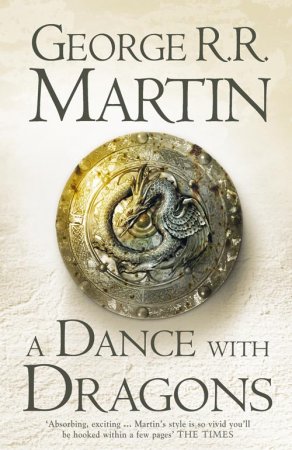 A Dance with Dragons
A Dance with Dragons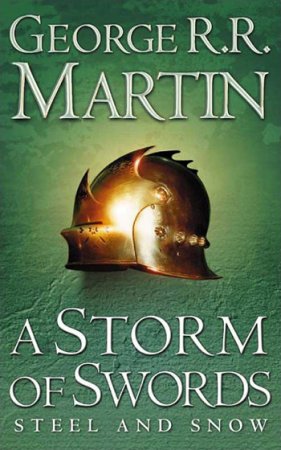 A Storm of Swords
A Storm of Swords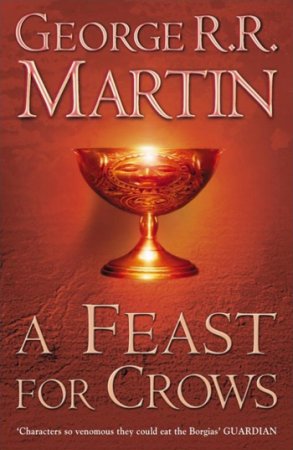 A Feast for Crows
A Feast for Crows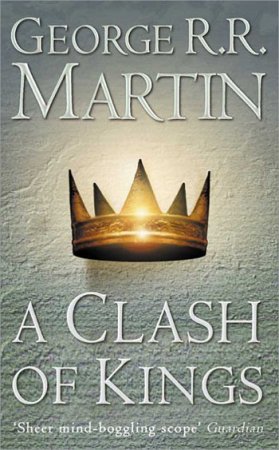 A Clash of Kings
A Clash of Kings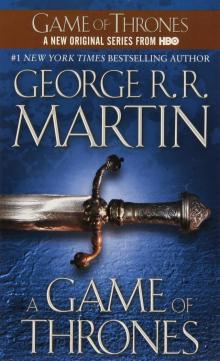 A Game of Thrones
A Game of Thrones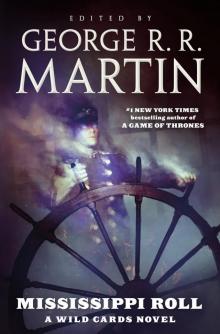 Mississippi Roll
Mississippi Roll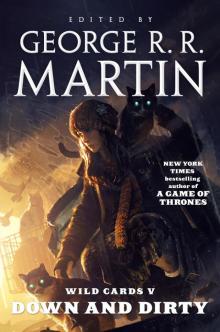 Wild Cards V: Down and Dirty
Wild Cards V: Down and Dirty Busted Flush
Busted Flush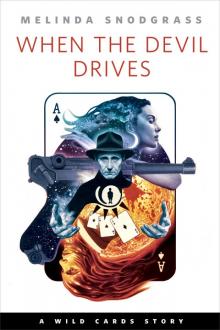 When the Devil Drives
When the Devil Drives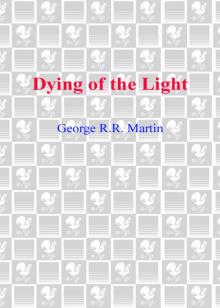 Dying of the Light
Dying of the Light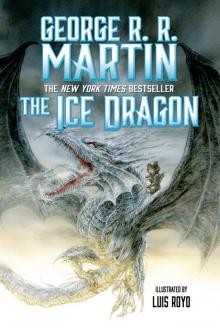 The Ice Dragon
The Ice Dragon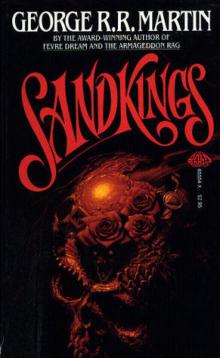 Sandkings
Sandkings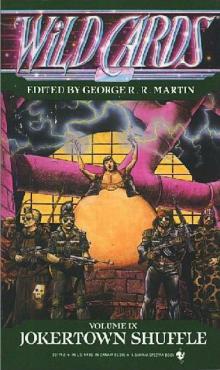 Jokertown Shuffle
Jokertown Shuffle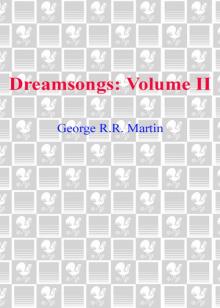 Dreamsongs. Volume II
Dreamsongs. Volume II Deuces Down
Deuces Down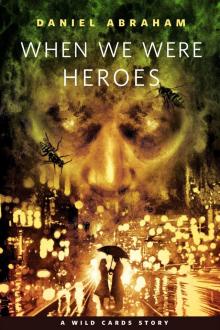 When We Were Heroes
When We Were Heroes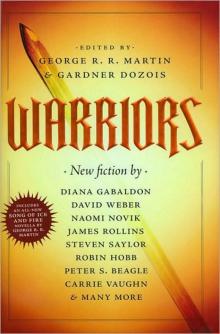 Warriors
Warriors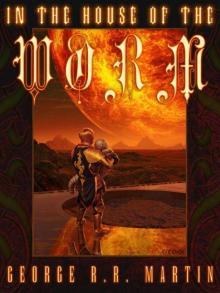 In the House of the Worm
In the House of the Worm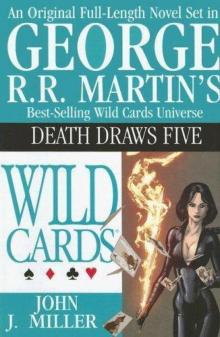 Death Draws Five
Death Draws Five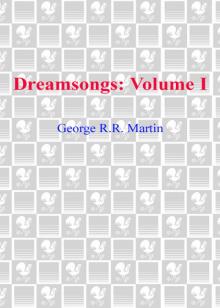 Dreamsongs. Volume I
Dreamsongs. Volume I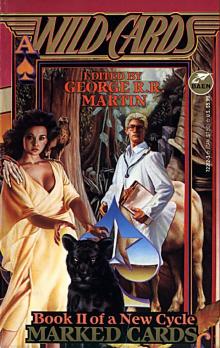 Marked Cards
Marked Cards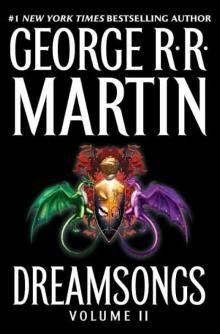 Dreamsongs
Dreamsongs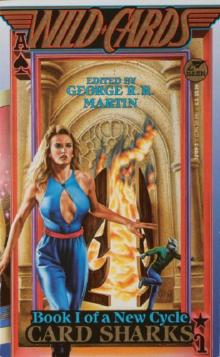 Card Sharks
Card Sharks Dangerous Women
Dangerous Women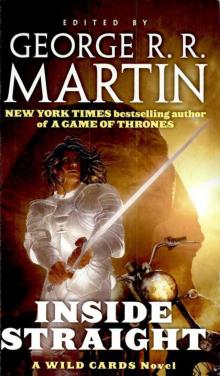 Inside Straight
Inside Straight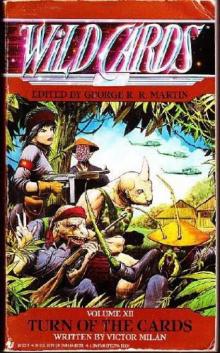 Turn of the Cards
Turn of the Cards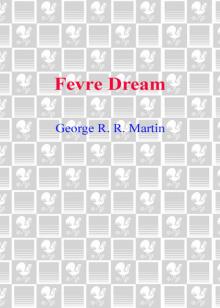 Fevre Dream
Fevre Dream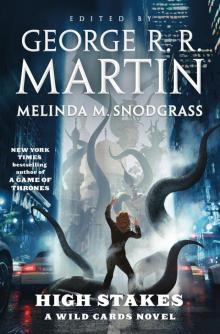 High Stakes: A Wild Cards Novel
High Stakes: A Wild Cards Novel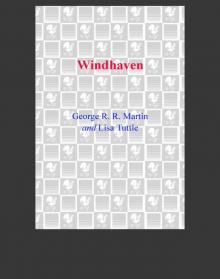 Windhaven
Windhaven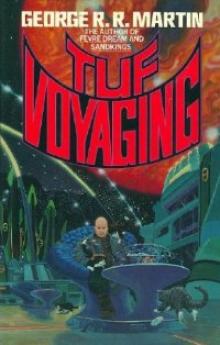 Tuf Voyaging
Tuf Voyaging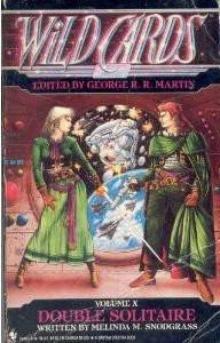 Double Solitaire
Double Solitaire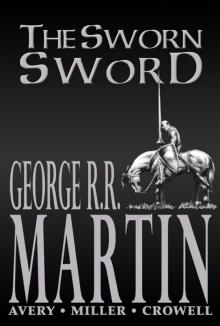 The Sworn Sword
The Sworn Sword Low Chicago
Low Chicago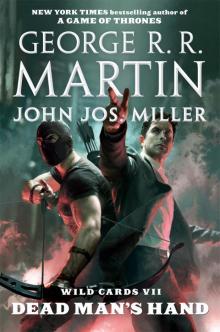 Dead Man's Hand
Dead Man's Hand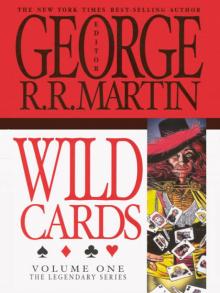 Wild Cards
Wild Cards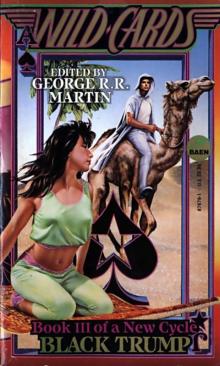 Black Trump
Black Trump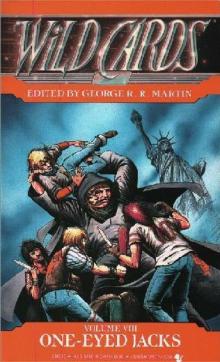 One Eyed Jacks
One Eyed Jacks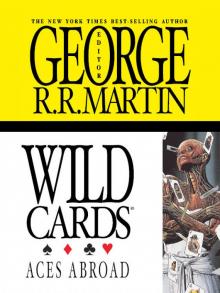 Wild Cards: Aces Abroad
Wild Cards: Aces Abroad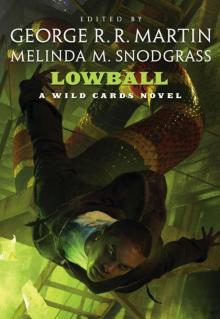 Lowball: A Wild Cards Novel
Lowball: A Wild Cards Novel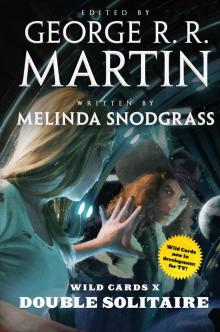 Double Solitaire (2019 Edition)
Double Solitaire (2019 Edition)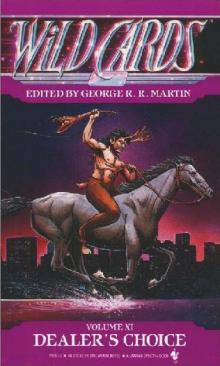 Dealer's Choice
Dealer's Choice Ace in the Hole
Ace in the Hole A Song for Lya: And Other Stories
A Song for Lya: And Other Stories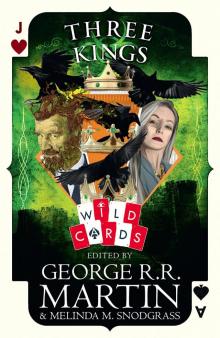 Three Kings
Three Kings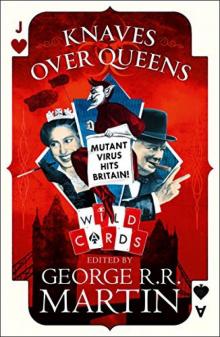 Knaves Over Queens
Knaves Over Queens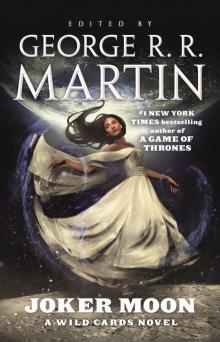 Joker Moon
Joker Moon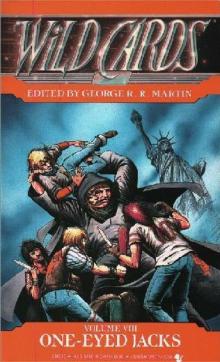 One Eyed Jacks wc-8
One Eyed Jacks wc-8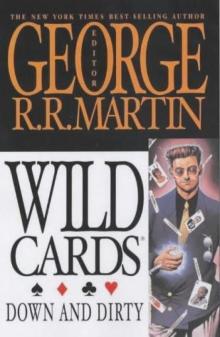 Down And Dirty wc-5
Down And Dirty wc-5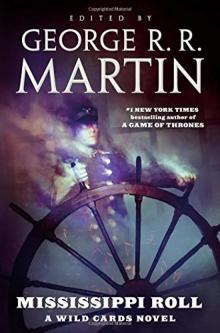 Mississippi Roll_A Wild Cards Novel
Mississippi Roll_A Wild Cards Novel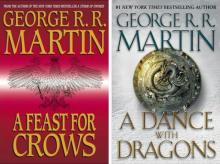 A Feast for Dragons
A Feast for Dragons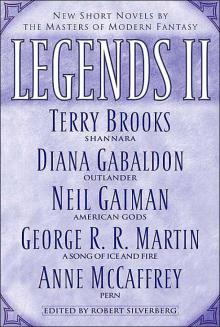 The Sworn Sword ttodae-2
The Sworn Sword ttodae-2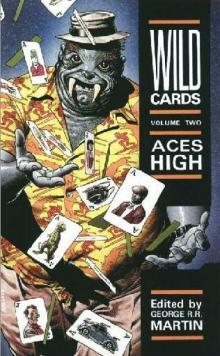 Aces High wc-2
Aces High wc-2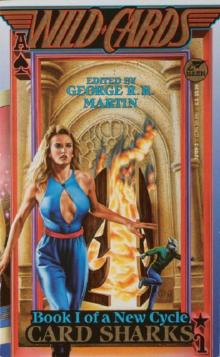 Wild Cards 13 : Card Sharks
Wild Cards 13 : Card Sharks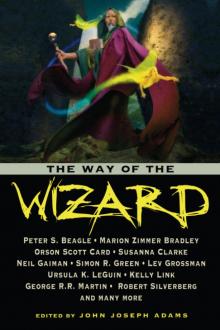 Way of the Wizard
Way of the Wizard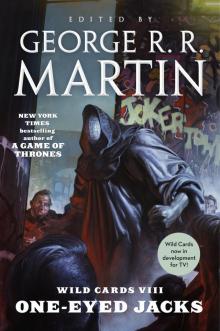 Wild Cards VIII: One-Eyed Jacks
Wild Cards VIII: One-Eyed Jacks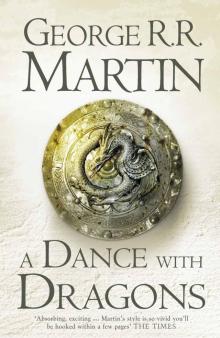 A Dance With Dragons: Book 5 of A Song of Ice and Fire (Song of Ice & Fire 5)
A Dance With Dragons: Book 5 of A Song of Ice and Fire (Song of Ice & Fire 5)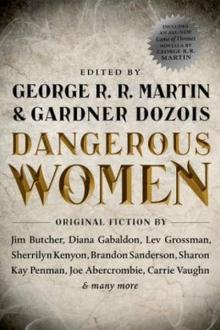 The Princess and The Queen, Or, The Blacks and The Greens (a song of ice and fire)
The Princess and The Queen, Or, The Blacks and The Greens (a song of ice and fire)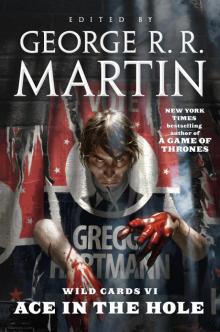 Wild Cards VI--Ace in the Hole
Wild Cards VI--Ace in the Hole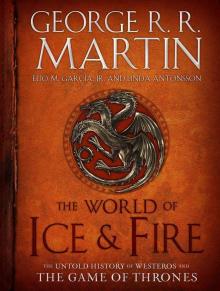 The World of Ice & Fire: The Untold History of Westeros and the Game of Thrones (A Song of Ice and Fire)
The World of Ice & Fire: The Untold History of Westeros and the Game of Thrones (A Song of Ice and Fire)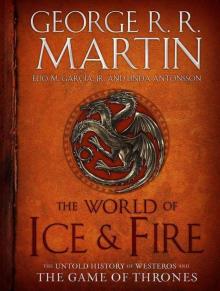 The World of Ice & Fire: The Untold History of Westeros and the Game of Thrones
The World of Ice & Fire: The Untold History of Westeros and the Game of Thrones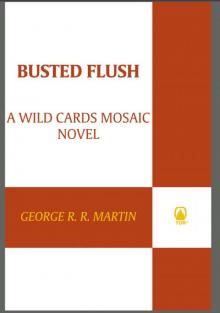 Busted Flush wc-19
Busted Flush wc-19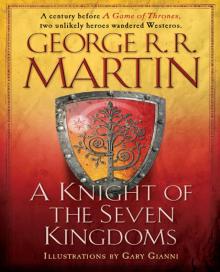 A Knight of the Seven Kingdoms
A Knight of the Seven Kingdoms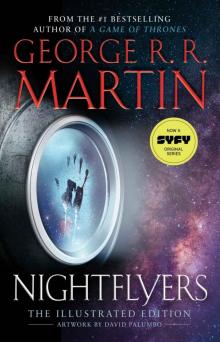 Nightflyers: The Illustrated Edition
Nightflyers: The Illustrated Edition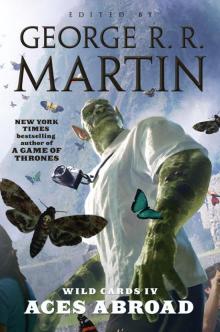 Wild Cards IV
Wild Cards IV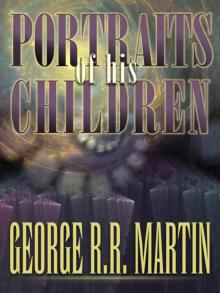 Portraits of His Children
Portraits of His Children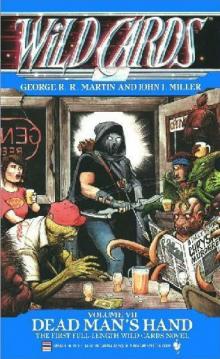 Dead Mans Hand wc-7
Dead Mans Hand wc-7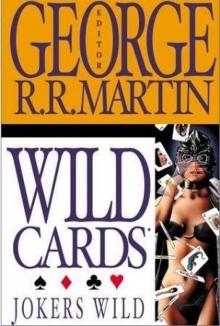 Jokers Wild wc-3
Jokers Wild wc-3 The Lonely Songs of Laren Dorr
The Lonely Songs of Laren Dorr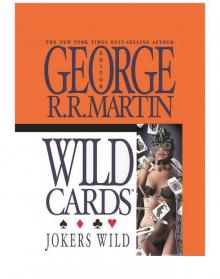 Wild Cards III: Jokers Wild
Wild Cards III: Jokers Wild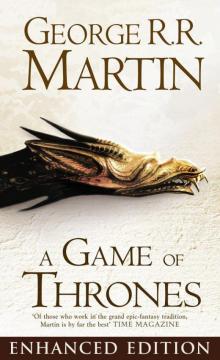 A Game of Thrones Enhanced Edition
A Game of Thrones Enhanced Edition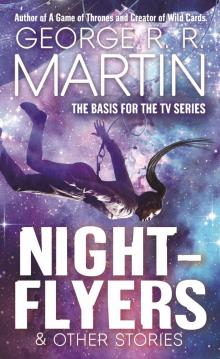 Nightflyers & Other Stories
Nightflyers & Other Stories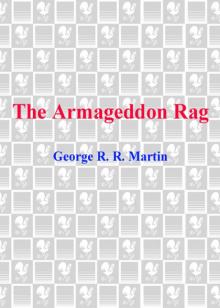 Armageddon Rag
Armageddon Rag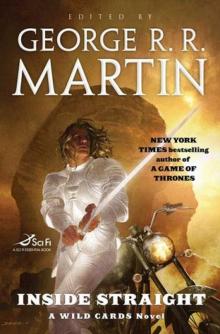 Wild Cards: Inside Straight
Wild Cards: Inside Straight A Song for Lya
A Song for Lya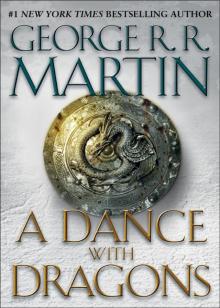 A Dance with Dragons: A Song of Ice and Fire: Book Five
A Dance with Dragons: A Song of Ice and Fire: Book Five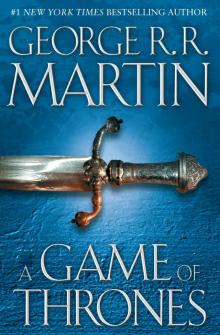 Song of Fire & Ice 01 - A Game of Thrones
Song of Fire & Ice 01 - A Game of Thrones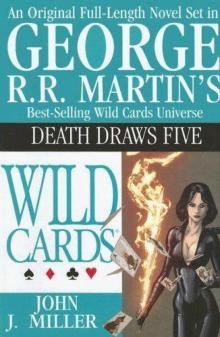 Death Draws Five wc-17
Death Draws Five wc-17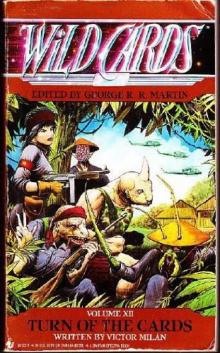 Turn of the Cards w-12
Turn of the Cards w-12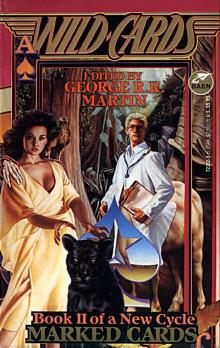 Wild Cards 14 - Marked Cards
Wild Cards 14 - Marked Cards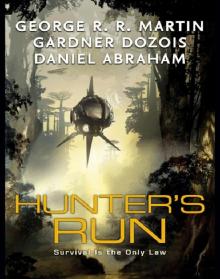 Hunter's Run
Hunter's Run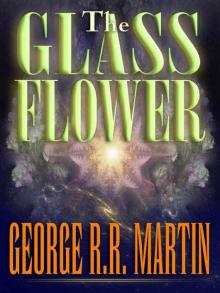 The Glass Flower
The Glass Flower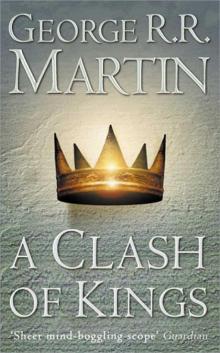 A Clash of Kings asoiaf-2
A Clash of Kings asoiaf-2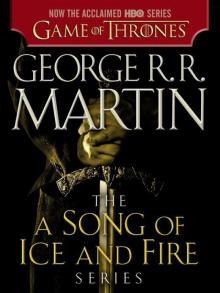 A Game of Thrones 5-Book Bundle: A Song of Ice and Fire Series: A Game of Thrones, A Clash of Kings, A Storm of Swords, A Feast for Crows, and A Dance with Dragons (Song of Ice & Fire)
A Game of Thrones 5-Book Bundle: A Song of Ice and Fire Series: A Game of Thrones, A Clash of Kings, A Storm of Swords, A Feast for Crows, and A Dance with Dragons (Song of Ice & Fire)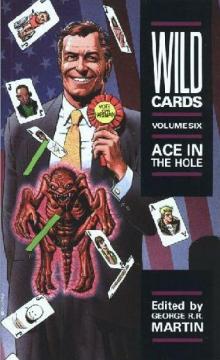 Ace In The Hole wc-6
Ace In The Hole wc-6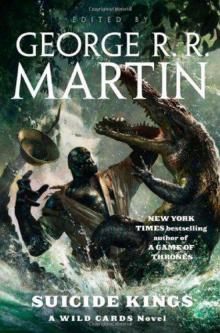 Suicide Kings wc-20
Suicide Kings wc-20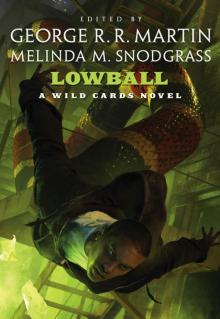 Lowball
Lowball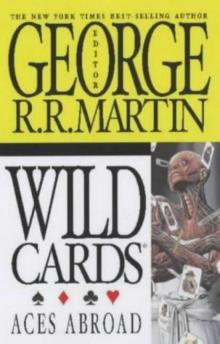 Aces Abroad wc-4
Aces Abroad wc-4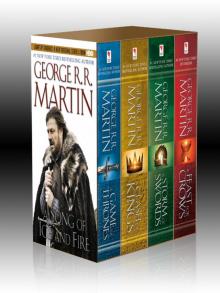 George R. R. Martin's a Game of Thrones 4-Book Bundle
George R. R. Martin's a Game of Thrones 4-Book Bundle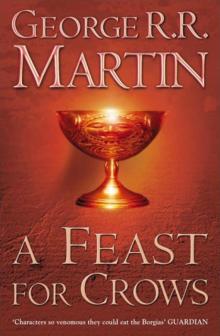 A Feast for Crows asoiaf-4
A Feast for Crows asoiaf-4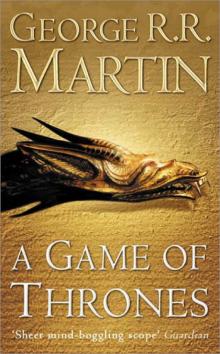 A Game of Thrones asoiaf-1
A Game of Thrones asoiaf-1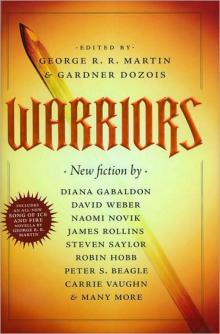 The Mystery Knight ttodae-3
The Mystery Knight ttodae-3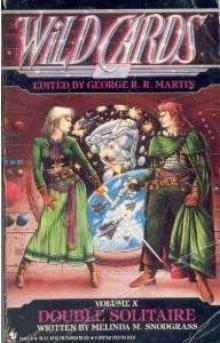 Double Solitaire w-10
Double Solitaire w-10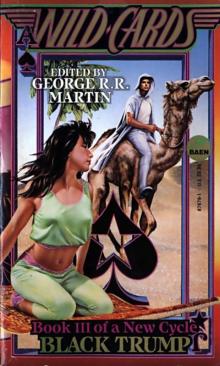 Wild Cards 15 - Black Trump
Wild Cards 15 - Black Trump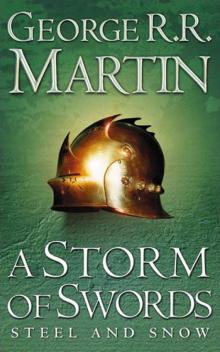 A Storm of Swords asoiaf-3
A Storm of Swords asoiaf-3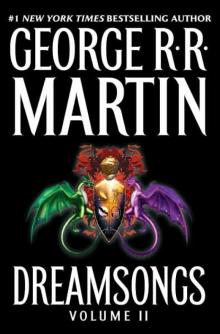 The Hedge Knight ttodae-1
The Hedge Knight ttodae-1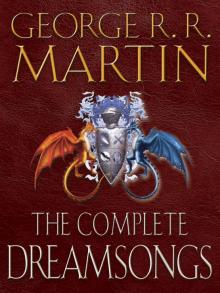 Dreamsongs 2-Book Bundle
Dreamsongs 2-Book Bundle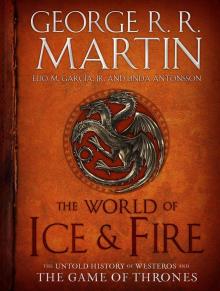 The World of Ice & Fire
The World of Ice & Fire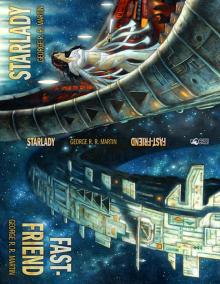 Starlady & Fast-Friend
Starlady & Fast-Friend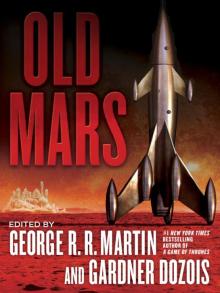 Old Mars
Old Mars Fantasy For Good: A Charitable Anthology
Fantasy For Good: A Charitable Anthology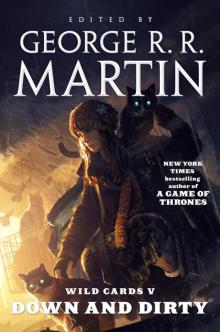 Wild Cards V
Wild Cards V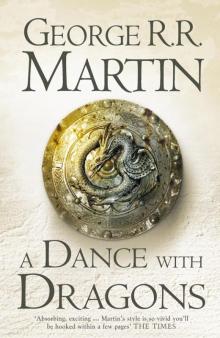 A Dance with Dragons asoiaf-5
A Dance with Dragons asoiaf-5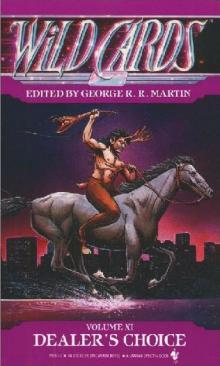 Dealer's Choice w-11
Dealer's Choice w-11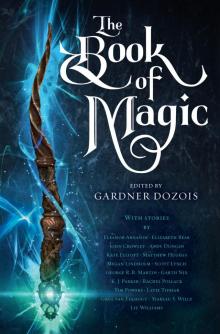 The Book of Magic
The Book of Magic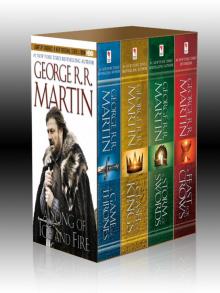 A Game of Thrones 4-Book Bundle
A Game of Thrones 4-Book Bundle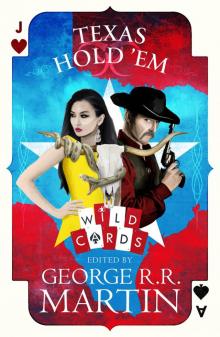 Texas Hold 'Em
Texas Hold 'Em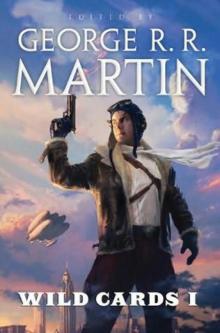 Wildcards wc-1
Wildcards wc-1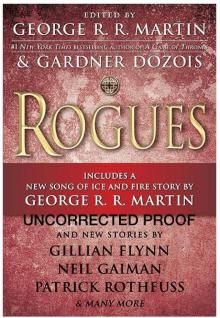 Rogues
Rogues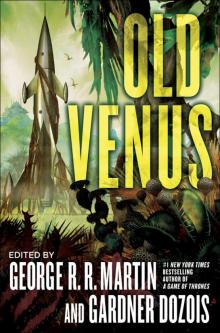 Old Venus
Old Venus